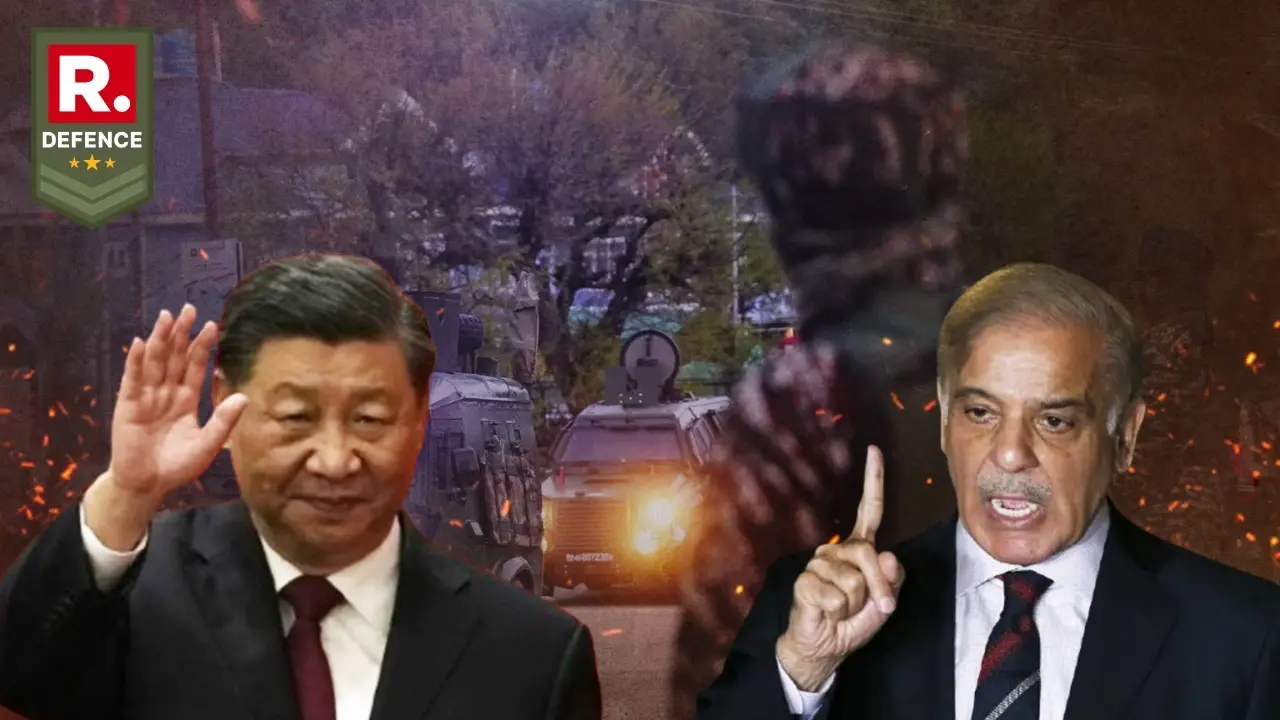Updated 30 April 2025 at 21:55 IST
Is China Shielding Terror? Beijing Backs Pakistan After Pahalgam Massacre by LeT Terrorists
The brutal massacre marked the deadliest civilian attack in Jammu and Kashmir in decades, dismantling India's narrative of peace in the region.
- Defence News
- 4 min read

Kashmir, India - On April 22, 2025, terror descended on Pahalgam’s Baisaran Valley as seven terrorists, armed with AK-47s and American-origin M4 carbines, stormed the lush tourist hotspot and left behind a trail of blood. Their target was chillingly specific: Hindu tourists. Forced at gunpoint to recite the Islamic kalima, only those who complied were spared. The rest were executed in cold blood, making it the deadliest civilian massacre in Jammu and Kashmir in decades.
The calculated nature of the killings shattered the much-touted narrative of “normalcy” the Indian state had been projecting. Within hours, India’s counterterror grid confirmed what many feared—this was no local outburst of violence. Digital signatures, intercepts, and forensic trails pointed squarely toward The Resistance Front (TRF), a Lashkar-e-Taiba proxy based out of Pakistan. Safe houses in Muzaffarabad and Karachi were directly linked to the killers.
India Retaliates Diplomatically; China Muddies The Waters With Pro-Pakistan Posturing
New Delhi responded with measured but sharp retaliation—suspending the Indus Waters Treaty, downgrading diplomatic ties, and ejecting Pakistani envoys. Pakistan, unsurprisingly, denied any involvement and chose escalation over introspection, closing airspace and freezing cross-border trade. But while global capitals condemned the carnage, Beijing’s reaction was revealing—and troubling.
Rather than express solidarity with the victims or unequivocally condemn the attack, China stood by its all-weather ally. A statement by the Chinese Foreign Ministry, reported by the Economic Times on April 29, blandly called for “restraint” and framed the massacre as a bilateral issue between India and Pakistan. The focus wasn’t on the brutality of the act but on China’s classic diplomatic mantra—dialogue over justice, silence over accountability.
Advertisement
China Claims Victimhood In Xinjiang But Shields Pakistan's Jihadi Ecosystem
The damage didn’t end there. At the United Nations Security Council, where China holds a permanent seat, Beijing blocked a statement that named India as the affected party. Instead, it pushed for the neutral phrase “all relevant authorities,” blunting global censure and diluting Pakistan’s central role. The same playbook has been used before—blocking UN designations against Lashkar and Jaish terrorists, including Masood Azhar.

Ironically, China claims to be a victim of terrorism itself. The 2009 Urumqi riots in Xinjiang are routinely cited as justification for its draconian domestic policies. Yet, when the terror strikes are across the Himalayas, Beijing’s moral compass swings wildly. It shields Pakistan even as 32 Chinese citizens have died in terror attacks within Pakistani territory since 2018.
Advertisement
China’s Double Standards On Terror Weaken Global Security And Empower Proxy Warfare
What explains this duplicity? The answer lies not in morality but in cold strategy. Pakistan is a linchpin in China’s Belt and Road Initiative. Over 60% of Pakistan’s military imports are Chinese—ranging from tanks to nuclear-capable missile systems. Islamabad is Beijing’s most pliant regional client, and protecting it serves China’s long game of curbing Indian influence.

Days after the Pahalgam massacre, Pakistan’s Finance Minister Muhammad Aurangzeb requested a 10 billion yuan top-up to an already generous 30 billion yuan currency swap line. The timing was not coincidental. Islamabad plans to issue its first Panda bond by year-end, a move likely coordinated with Beijing’s consent. Financial lifelines, arms exports, and diplomatic shielding—this is not partnership, but patronage.
Shielding Terror For Strategy: A Dangerous Precedent Set By A Permanent UNSC Member
China’s selective counterterrorism reveals a dangerous trend. It cracks down hard on perceived separatists in Tibet and Xinjiang, demands extraditions of Uyghur suspects from neighbouring countries, but refuses to act against Pakistan-based groups that murder civilians across the LoC. The duplicity undermines international norms and emboldens Islamabad’s terror proxies under the garb of “legitimate security concerns.”
By standing in India’s path to justice, China is not just antagonizing a neighbour—it is dismantling a fragile regional stability. In a volatile nuclear neighbourhood, such actions do not go unnoticed. If the Pahalgam massacre reveals the brutality of state-sponsored terror, China’s shielding of Pakistan highlights an equally grim reality—strategic alliances now trump the global fight against terrorism.
True justice will require more than border patrols and diplomatic expulsions. It demands a global consensus that terror has no justifications, no sponsors, and no backers in permanent seats. Beijing’s current stance, unfortunately, says otherwise.
Watch- India Vs Pakistan: India Tracks Down Hafiz Saeed's Top Security Hideout | Pahalgam | Explained
Published By : Yuvraj Tyagi
Published On: 30 April 2025 at 21:55 IST
